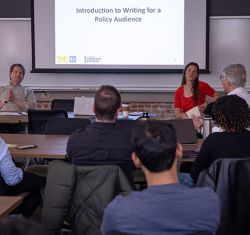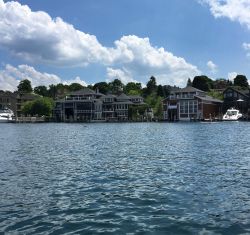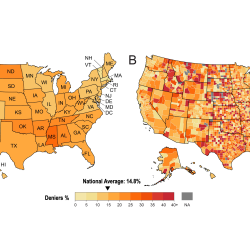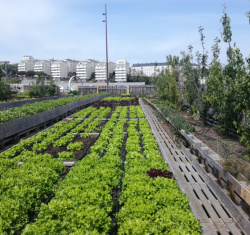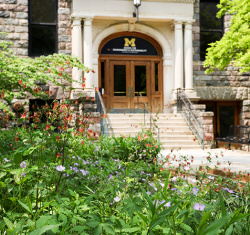
 back to all faculty
back to all faculty
Joshua Newell

About
Joshua Newell is a professor in the School for Environment and Sustainability at the University of Michigan. He is a broadly trained human-environment geographer, whose research focuses on questions related to urban sustainability, resource consumption, and environmental and social justice. Newell’s current research can be divided into two primary areas of interest. The first, Urban Infrastructure and Form, focuses on structural features of the urban form (e.g. built environment, transport, energy, and water infrastructure). The second research area, Urban Consumption and Commodities, focuses on the interrelationships between the consumption of consumer products, our responsibilities as global 'green' urban citizens, and the role of governance mechanisms and frameworks (including local institutions) in regulating product consumption. His research approach is often multi-scalar and integrative and, in addition to theory and method found in geography and urban planning, he draws upon principles and tools of industrial ecology, and spatial analysis. He teaches Sustainability and Society, a large undergraduate course, and Urban Sustainability, which is designed for MS and PhD students. He also leads a year-long interdisciplinary PhD student workshop that grapples with theories and concepts of urbanism, sustainability, and resilience.
Publications
- 2020. Goldstein, B.*, Gounaridis, D.* and Newell, J.P. The carbon footprint of residential energy use in the United States. Proceedings of the National Academy of Science (PNAS). Accepted.
- 2020. Newell, J.P. and A. Ramaswami. Urban food-energy-water systems: Past, current, and future research trajectories. Environmental Research Letters. 15: 05201
- 2020. Goldstein, B.*, and Newell, J.P. How to track corporations across space and time (TRACAST). Ecological Economics. 169: 106492.
- 2019. Meerow, S., and Newell, J.P. Urban resilience for whom, what, when, where, and why? Urban Geography. 40 (3): 309-329. Note: Web of Science Highly Cited Paper (Top 1% of Social Sciences
- 2019. Foster, A.*, and Newell, J.P. Detroit’s lines of desire: Informal footpaths and vacant land in the motor city. Landscape and Urban Planning. 189: 260-273.
- 2019. Newell, J.P., Goldstein, B.*, and Foster, A*. A 40-Year review of food-energy-water nexus literature and its application to the urban scale. Environmental Research Letters. 14(7).
Read more publications here.
Current Projects
The Sustainability Hoofprint of Cities: A Spatial Model to Assess Transboundary Urban Consumption. National Science Foundation (NSF), 2018-2021. PI: J.P. Newell (U. Michigan). Co-PI: Jennifer Schmidt (U. Minnesota). $313,049
Belmont Forum Collaborative Research: The FEW-Meter - An Integrative Model to Measure and Improve Urban Agriculture, Shifting It Towards Circular Urban Metabolism. National Science Foundation (NSF), 2018-2021. Five PIs in five countries. U.S. PI: J.P. Newell (U. Michigan). [U. Michigan Portion: $399,500] $2,000,000
U.S.-China: Integrated Systems Modeling of Food-Energy-Water (FEW) Nexus for Urban Sustainability. National Science Foundation (NSF), 2016-2020. PI: Ming Xu (U. Michigan). Co-PIs: J.P. Newell (U. Michigan), S. Miller (U. Michigan), J. Johnson (U. Michigan), N. Love (U. Michigan). $499,000
SRN: Integrated Urban Infrastructure Solutions for Environmentally Sustainable, Healthy and Livable Cities. National Science Foundation (NSF), 2015-2020. $12,000,000
PIs: A. Ramaswami (U. Minnesota), P.J. Culligan (Columbia University), Y. Fan (U. Minnesota), B.S. Orlove (Columbia University), A.G. Russell (Georgia Institute of Technology)
Senior Personnel: J.P. Newell (U. Michigan), R. Felock (Florida State University), B. Bakshi (Ohio State University), K. Kockelman (UT – Austin), D. Zimmerle (Colorado State University), N. Botchwey (Georgia Institute of Technology) [U. Michigan Portion: $750,000]
Expanding Green Infrastructure as a Response to Environmental Injustice and Climate Change. National Institute of Food and Agriculture (NIFA), 2018–2020. $140,000
PI: J.P. Newell (U. Michigan) Co-PIs: Robert Goodspeed (U. Michigan), Richard Rood (U. Michigan), D. Gounaridis (U. Michigan)
PhD, University of Washington (geography)
MA, University of Washington (geography)
BA, Brown University (history)
- Chair, Human Dimensions of Global Change Specialty Group of the Association of American Geographers (AAG) (2012–2014).
- Technical Committee, International Society for Industrial Ecology (ISIE) Conference (2013).
- Founding Board Member, Life Cycle Sustainability Assessment Section, ISIE (2011-2015).





